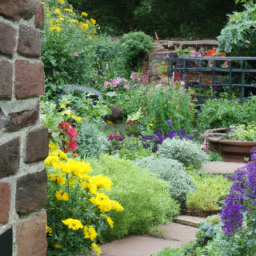Gardening is an enjoyable and rewarding activity for all ages. It allows us to step away from the hustle and bustle of everyday life, and instead spend time in nature, tending to our plants and providing them with the care they need to grow and flourish. Whether you’re a beginner or an experienced gardener, there are some basic principles you should understand before you start.
Before you begin any gardening project, you should research the plants you plan to grow. Consider the soil type, climate and amount of sunlight the plants need to thrive. You should also think about whether the plants will require regular pruning, deadheading or other maintenance to stay healthy. Knowing the needs of your plants can help you make the most of your garden and ensure they’re happy and healthy.
Once you’ve chosen the plants you’d like to grow, you need to prepare the soil. This includes loosening the soil, removing any weeds or debris, and adding compost and fertilizer to provide the plants with the necessary nutrients. You should also consider how the plants will be watered, as this will influence the type of soil you’ll need and determine the irrigation system you’ll use.
Now you’re ready to start planting! Depending on the plants you’ve chosen, you may need to start from seed or purchase young plants. If you’re planting seeds, you should ensure they’re sown at the correct depth and spaced appropriately to ensure they have enough room to grow. If you’re planting young plants, you should make sure the roots aren’t damaged when transferring them to their new home.
Once your plants are in the ground, you’ll need to make sure they’re getting the right amount of water. Overwatering can cause root rot, while underwatering can cause the leaves and stems to wilt. You should also check for pests and diseases regularly, as these can quickly spread and cause serious damage to your plants.
As your plants grow, you may need to provide them with additional support, such as staking or trellising. This will help your plants stay upright and prevent them from becoming damaged or bent over. You should also consider pruning, deadheading and other maintenance activities to ensure your plants stay healthy and look their best.
Harvesting is the best part of gardening. Depending on the plants you’re growing, you may be able to harvest fruits, vegetables, herbs and flowers. When harvesting, make sure to pick only ripe fruits and vegetables, as harvesting unripe produce can cause them to be bitter. If you’re harvesting flowers, you should wait until the petals have fully opened.
Gardening can be a very rewarding activity, but it does require some time and effort. With the right preparation and maintenance, you can ensure your plants are healthy and your garden is a beautiful and enjoyable place to be.
Extract Anonymous Image Description: An image of a person kneeling in the garden, wearing a pair of gardening gloves and tending to small plants in the soil.
